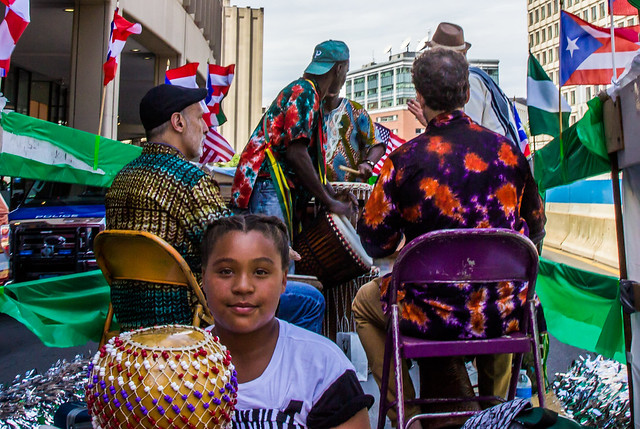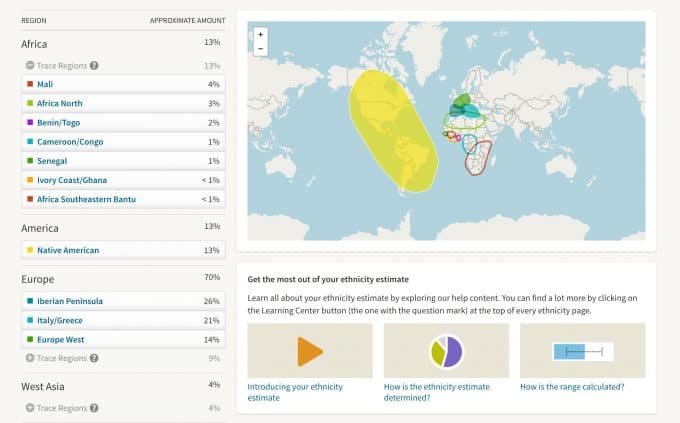Nations, and yet Puerto Rico was restricted from trading with other regions. In addition, the island lacked an indigenous labor supply to support agricultural expansion since a majority of the natives had been wiped- out during the first century of Spanish colonization. Instead of continuing to promote economic expansion through agricultural.
- Coming Out Of The Dark..puerto Rican Genealogy Ancestry
- Coming Out Of The Dark..puerto Rican Genealogy Society
- Coming Out Of The Dark..puerto Rican Genealogy Sites
- Coming Out Of The Dark..puerto Rican Genealogy Site
Maria wiped out 100% of Puerto Rico’s electrical grid, and a report from the Federal Communications Commission revealed that over 95% of cell sites were out of service. Puerto Ricans are quite. In addition to selected national microfilm records, this branch includes original regional records from New Jersey, New York, Puerto Rico, and the Virgin Islands. This branch of the National Archives holds more than 9,000 cubic feet of historical records dating from the Revolutionary War to the present. The Puerto Rican and U.S. Government wanted to make Puerto Rico more modern and economically successful. Rooted in the idea that Puerto Rico was overpopulated, there was a dual faceted plan to increase national success.The first part of the plan in the 1940s-1960s was to promote migration to New York and other parts of the United States.

Copy Citation
Coming Out Of The Dark..puerto Rican Genealogy Ancestry
Export Citation
With a personal account, you can read up to 100 articles each month for free.
Already have an account? Login
Monthly Plan
- Access everything in the JPASS collection
- Read the full-text of every article
- Download up to 10 article PDFs to save and keep
Yearly Plan
- Access everything in the JPASS collection
- Read the full-text of every article
- Download up to 120 article PDFs to save and keep
This paper discusses how a group of homoerotic (bisexual and homosexual) men in Puerto Rico became aware of their same-sex attraction, how they managed their sexual differences and their journeys in the path to acceptance and disclosure of their sexual identities. The paper attempts to provide a multicultural perspective to the analysis of the processes of how a sexual minority in a society that criminalizes sexual acts between people of the same sex confronts, accepts and discloses its differences with dominant heterosexism imposed by hegemonic masculinity discourses. /// Este artículo discute cómo un grupo de hombres puertorriqueños homoeróticos (bisexuales y homosexuales) descubrieron su atracción hacia otros hombres, cómo manejaron su disidencia sexual, y sus vivencias en el proceso de aceptación y revelación de sus identidades sexuales. El trabajo de investigación intenta proveer una perspectiva multicultural al análisis de los procesos por medio de los cuales una minoría sexual, en una sociedad que criminaliza los actos sexuales entre personas del mismo sexo, confronta, acepta y revela sus diferencias con el heterosexismo impuesto por los discursos masculinos hegemónicos. /// Cet article analyse comment un groupe d'hommes portoricains homoérotiques (bisexuels et homosexuels) ont pris conscience de leur attraction envers d'autres hommes, comment ils ont ménagé leur dissidence sexuelle, et leurs expériences dans le processus d'adaptation et de révélation de leurs identités sexuelles. Le travail de recherche essaie de fournir une perspective multiculturelle à l'analyse des processus par lesquels une minorité sexuelle - dans une société qui pénalise les actes sexuels entre des gens du même sexe - confronte, accepte et révèle ses différences avec l'hétérosexisme imposé par les discours masculins hégémoniques.
Caribbean Studies is a peer-reviewed multidisciplinary journal published since 1961 by the Institute of Caribbean Studies, College of Social Sciences, University of Puerto Rico, Río Piedras Campus. The journal publishes twice a year original works on the Social Sciences and the Humanities in English, Spanish and French languages. It is written and edited by and for Caribbeanists and other persons keenly interested in keeping up with the ongoing research and writing in the field of Caribbean Studies. The journal is divided in four parts: articles, research notes, book reviews, and news and events. Also, sometimes the journal includes photographic essays and obituaries of important scholars working on the Caribbean.
The Institute of Caribbean Studies, established in 1958 as part of the Faculty of Social Sciences, is the first interdisciplinary research center in the region with the 'Greater Caribbean' as its field of inquiry. Its mission is to conduct, support and divulge academic research of the region in the disciplines of Social Sciences and the Humanities. The senior staff of the Institute is composed of the Director and three full-time investigators. Its premier publication, Caribbean Studies, was started in 1961 and includes original works and books reviews in English, Spanish and French.
Coming Out Of The Dark..puerto Rican Genealogy Society
This item is part of a JSTOR Collection.
For terms and use, please refer to our Terms and Conditions
Caribbean Studies © 2003 Institute of Caribbean Studies, UPR, Rio Piedras Campus
Request Permissions
Coming Out Of The Dark..puerto Rican Genealogy Sites

Coming Out Of The Dark..puerto Rican Genealogy Site
